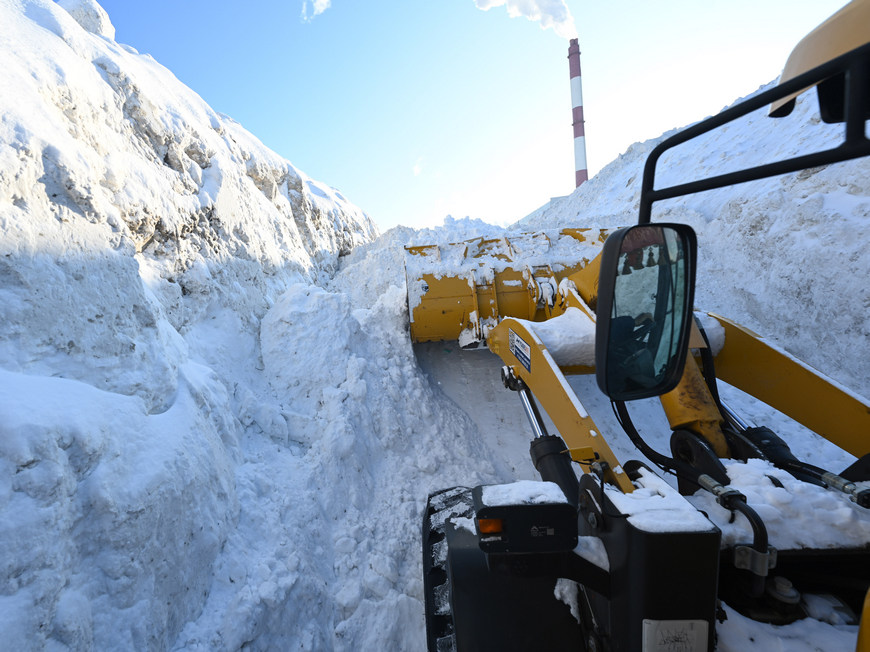Today, Kazan Mayor Ilsur Metshin took part in the
conference of the All-Russia People’s front on the “Safe and high-quality roads”
national project. The participants of the meeting, which was held in a
videoconference mode, discussed the organization of traffic infrastructure and
prospects for the development of the national project for the next decade.
The minister of transport of Russia Yevgeny Dietrich,
Deputy energy Minister Anton Inyutsyn, General Director of JSC KAMAZ Sergey
Kogogin and others took part in the discussion.
83% of the Kazan
road network is in the standard condition
“Safe and high-quality roads is the largest national
project. Its budget until 2024 is approximately 4.8 trillion rubles,”- said the
moderator of the meeting Sergey Kogogin. According to the national project, an
extensive work is planned for the construction, modernization, improvement of
roads, introduction of innovative technologies for managing traffic flows and
improving safety.
In Kazan, a record amount of 30.5 billion rubles has
been allocated for roadworks over the past 4 years, including 9.7 billion
rubles under the national project, of which 7.3 billion rubles are federal
funds, Kazan Mayor Ilsur Metshin said during his speech.
“Thanks to this, we managed to achieve the normative
state of the city's road network at the level of 83%. We paid close attention
to the sectors of accidents concentration”, - the head of the city noted.
“We managed to do all this only thanks to the support
of the Federal center, including during the preparation for major international
projects, since the Universiade, - said the Mayor of Kazan. – I want to thank
the Federal Government and the President of our country for the invaluable
support that Kazan systematically receives during these events. I would also
like to express gratitude to Tatarstan President Rustam Minnikhanov, who pays
great attention to the road and traffic infrastructure of our city”.
I.Metshin
proposed to introduce high-speed bus service in cities
Ilsur Metshin noted that since 2009 Kazan is an
actively developing city. Today, more than 1.2 million people live in the
capital of Tatarstan.
“Unfortunately, the pace of construction of new roads lags
far behind the pace of housing construction. Thanks to the infrastructure
projects that I have mentioned, we have solved the problems of traffic jams,
and many works have been done. But we have to state that at the four main
entrances to Kazan during rush hours, many kilometers of traffic jams still happen”,
- I.Metshin said.
In this regard, the Mayor of Kazan proposed to provide
funding for the construction of major road facilities under the national
project, which will solve the problems not only of the city, but also of the
entire Kazan agglomeration. For example, this applies to the Voznesensky tract,
its length to the Federal highway M7 should be 12 km. Currently we create a design
of this road from Ametievsky highway to Pobedu Avenue. The city is ready to
start construction next year.
I.Metshin also proposed to develop municipal passenger
transport through the introduction of high-speed bus service. “Together with
the Russian road research Institute, we are developing a concept for launching
pilot metrobuses routes. Four lines of routes are being worked out”, - the
Mayor of Kazan said.
The regions will
be assisted in updating passenger transport
This year, it was decided to assist the regions in
updating passenger transport, said Yevgeny Dietrich. Thus, federal support is
provided with the use of leasing arrangements. The Federal budget will allocate
20 billion rubles for this purpose. In total, within the framework of the
national project, 12 agglomerations will get new buses by the end of the year,
including in Kazan.
85% of regional network
roads will be brought up to standard by 2030
The Minister of transport noted that this year many
capital-intensive projects are planned in the regions. For example, in
Tatarstan, the construction of the Great Kazan Ring road, the crucial for the
city, is underway.
It is planned to redistribute annually the final
values and indicators of implementation up to 2030. “The indicators are already
exceeding the planned values. So far, we have achieved 65 percent compliance.
By 2030, we plan to bring the share of regional roads included in the network
to 85% and increase the overall indicator of the normative state of all regional
roads to 60%”,- said Yevgeny Dietrich.
The conference participants also discussed the
development of infrastructure for gas-powered vehicles, the transport leasing
program, and the introduction of unmanned vehicles.
